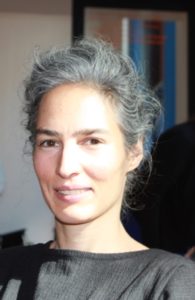Roma as an Object of Science and State Polices. Knowledge and Citizens in the Making in Post-war Czechoslovakia, 1945–1989
Research area 2: Norms & Transgressions
Contact : nikola.ludlova(@)cefres.cz
My dissertation project traces the history of the knowledge production on Roma in Czechoslovakia between 1945 and 1989. This history is inextricably linked with the so-called ‘Gypsy Question’ as it was primarily the interest of the state in knowledge on Roma what initiated and stimulated research and knowledge production and led to the institutionalization of Roma as an object of science. In line with the socialist ethos of new man, the state social engineering project targeting Roma applied state planning in its effort to assimilate and later integrate these “citizens-in-training” into the society. Various scientific disciplines thus became instrumental to the state employing the scientific management approach to social questions. However, this knowledge production was not solely a state-commissioned enterprise, there were also actors whose interest and academic production on Roma was motivated by individual research interests and who secured the continuity of research regardless of the state interest in this knowledge. Some of these actors despite participating in state commissioned projects became during the period of political thaw in the 1960s open critics of the state assimilatory policies and supporters of and co-activists in the ethno-emancipatory efforts of Roma intellectuals. Knowledge therefore served simultaneously too opposing goals: to legitimize assimilation or ethnoemancipation.
My research is thus a contribution to the scholarship on the larger historiographical question in the history of science, i.e. the mutual interaction between political and scientific realms. Apart from the mentioned instrumentalization of knowledge, I am interested to find out how the establishment of Roma as an object of science enhanced development in these disciplines. In conclusion, I aim to situate the knowledge production in socialist Czechoslovakia within the longer history of knowledge production on Roma and specifically to position it in respect to the field of knowledge termed as Gypsy studies or gypsiology.
CV
Education
2016 – Central European University, Budapest, Department of History, Doctoral program in Comparative History of Central, Southeastern and Eastern Europe
September 2014 – June 2016, Central European University, Budapest, Department of History, Master program in Comparative History of Central, Southeastern and Eastern Europe
October 2003 – May 2009 Charles University in Prague, Faculty of Philosophy and Arts, Department of Romani studies, Bachelor program in Philology
Publications
Ludlová, Nikola. “Vita Sexualis: Karl Ulrichs and the Origins of Sexual Science.” European Review of History: Revue européenne d’histoire (March, 2020). A book review. Published online.
Ludlová, Nikola. “Coerced Sterilization of Romani Women in the Czech (Czechoslovak) and European Context: The Past and Present.” Conference report. Published online in June 2018 at the website of the Prague Forum for Romani Histories
Ludlová, Nikola, and Pavel Baloun. “Tracing the Legacies of the Roma Genocide. Families as Transmitters of Experience and Memory.” A Conference report. Published online in April 2018 at the H-Soz-Kult website
Ludlová, Nikola. “Humorous Stories as a Tool for Building Prestige and Self-Esteem. A Social Analysis of the Romani Verbal Art.” ENTER+ vol. 29. The manual for Romani art. (January 2016).
Other academic activities
8 – 18+1 September, 2021, Gypsy Lore Society Conference on Romani Studies. Organized by the Gypsy Lore Society in cooperation with the Prague Forum for Romani Histories. Conference paper: Roma as an Object of Demographic Science
2 – 5 July, 2018, Public History Summer School in Wroclaw, Poland.
Organized by the Historical Institute of the University of Wroclaw in cooperation with the International Federation for Public History and Zajezdnia History Centre
16 – 21 July, 2018, The Biological and the Social between 1900 and Today
Organized by the History Department of Central European University, Budapest in cooperation with Fritz Thyssen Foundation

